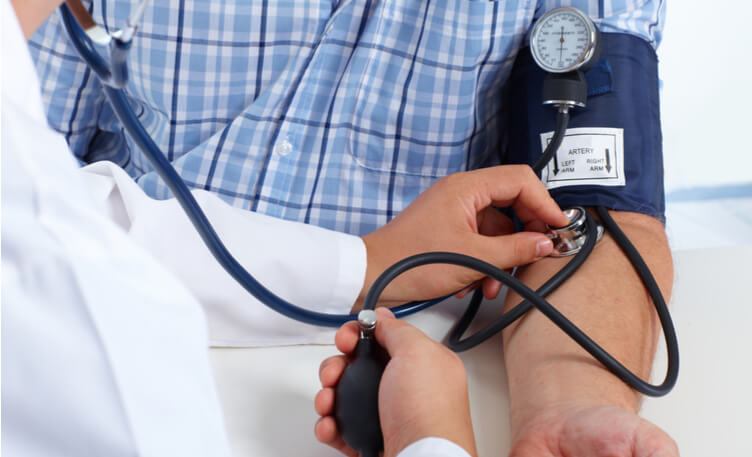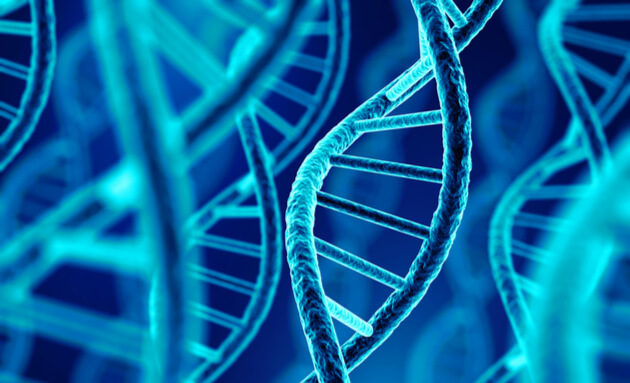
High Blood Pressure: 6 Signs and Symptoms of Hypertension (High BP)
High blood pressure or hypertension is often associated with few or no symptoms. There’s a reason why hypertension is called the “silent killer” because many people suffer from it without facing any symptoms.
However, just because high blood pressure is often symptomless doesn’t mean it’s harmless. In fact, uncontrolled high blood pressure, or hypertension, causes damage to your arteries, especially those in the kidneys and eyes. High blood pressure is also a risk factor for stroke, heart attack, and other cardiovascular problems.
If you are worried that you could be suffering from hypertension, here are 6 signs that you need to watch out for.
1. Your Reading Is Above 140/90
Blood pressure readings consist of two numbers. The top number is your systolic blood pressure and the bottom one is your diastolic blood pressure. Generally, a normal blood pressure reading was considered to be more than 120 over 80 and less than 140 over 90.
However, in 2017, major heart health organisations around the globe unanimously decided to lower the blood pressure (BP) levels for the diagnosis of hypertension from the older threshold of 140/90 mm Hg (under 65 years) and 150/80 mm Hg (above 65 years) to 130/80 mm Hg and higher for all adults. Based on this new criteria, if your numbers are over 130/80 mm Hg then you should consult a doctor immediately or find ways to lower your blood pressure.
It is essential to keep tabs on your blood pressure, especially when you lead an unhealthy life or have a family history of hypertension. You can easily purchase a blood pressure monitor from your local pharmacy and drugstore to keep a check on your blood pressure. The readings are very accurate and similar to what you would get in a hospital.
Your blood pressure keeps changing constantly to adjust to your body’s activity level, hydration, sleep, food intake, and other factors. In order to get an accurate reading, you may need to take several readings of your blood pressure over time.
Pick a time when you are calm and well-hydrated, and repeat the test weekly or monthly under the same conditions. Write down the dates and readings so that you can take them with you on your next doctor’s visit.
2. Family History of Hypertension

While exercising and healthy eating go a long way towards lowering your blood pressure, there are some risk factors that you may not be able to change.
Genetics is a major contributing factor when it comes to your heart’s health, and blood pressure can be hereditary. If you are aware of your immediate family (parents, grandparents, and siblings) being hypertensive or having had a heart attack before the age of 45 , you should make it a priority to visit a doctor.
Understanding family history is important to recognize the cause of high blood pressure, further evaluating whether it is genetic, poor eating habits or lack of exercise repeating itself across generations is also essential.
Even if you have a family history of high blood pressure, it doesn’t mean that you can’t take actions to avoid another heart episode in the family. Recognizing high blood pressure is challenging, but with regular blood pressure readings, you can easily track it.
3. Experiencing Brain Fog
Some people with hypertension may experience mild, chronic headaches, and what is known as brain fog. This is a condition that occurs when the oxygen supply to the brain is poor or blocked, causing a sense of forgetfulness, trouble with learning, memory and comprehension. If hypertension goes undetected for long periods of time, overall brain health may be compromised, increasing the risk of dementia and Alzheimer’s disease.
If you have been getting frequent crushing headaches or experiencing intense brain fog, you need to visit the doctor immediately.
4. Change in Vision

Tiny, delicate blood vessels transport blood to the eyes. Long-term high blood pressure can squeeze off blood flow and damage the blood vessels. Fluid may build up under the retina, making you lose focus of objects. These blocks can cause distortion of vision and even result in complete loss of vision. If you are experiencing blurry vision or noticeable swelling in your eyes, make an appointment to see a doctor right away.
5. Sudden Dizziness
Dizziness and feeling slightly off balance are early warning signs of a stroke caused by high blood pressure. These symptoms occur due to lack of oxygen supply to the brain. If the dizziness has to do with standing up too fast or watching a sped-up video, it’s probably nothing to worry about. However, if the dizziness doesn’t go away for a long period of time, make an appointment with your doctor.
Hypertension is a chronic condition that can be managed with lifestyle changes including a healthy diet and regular exercise.






